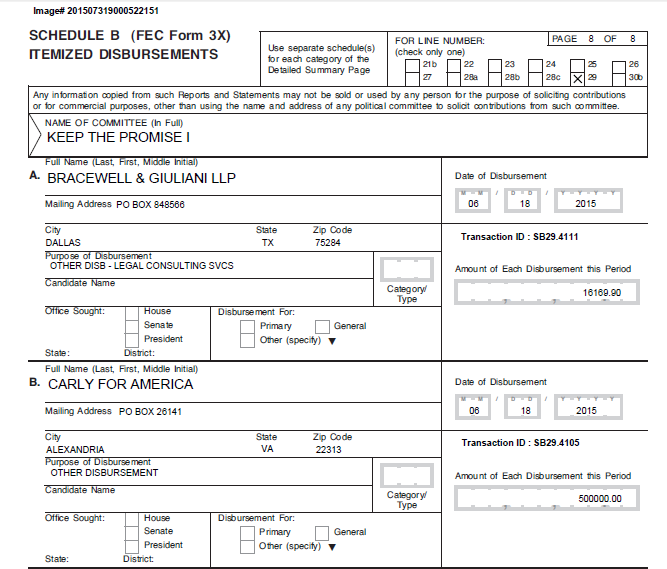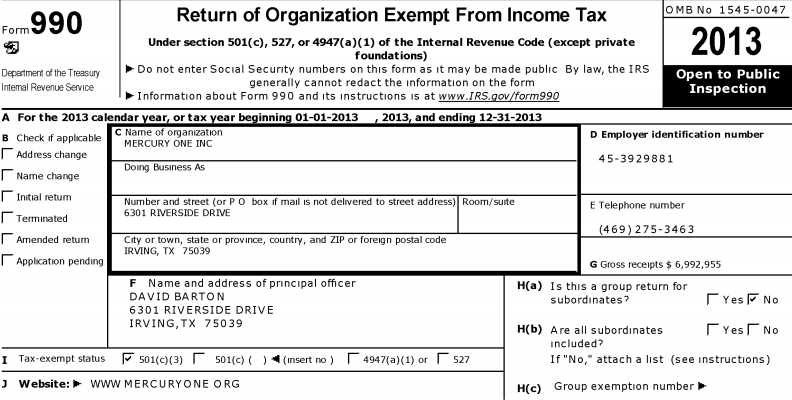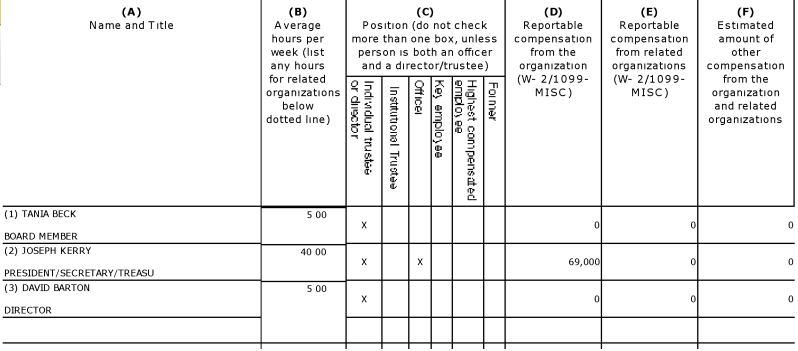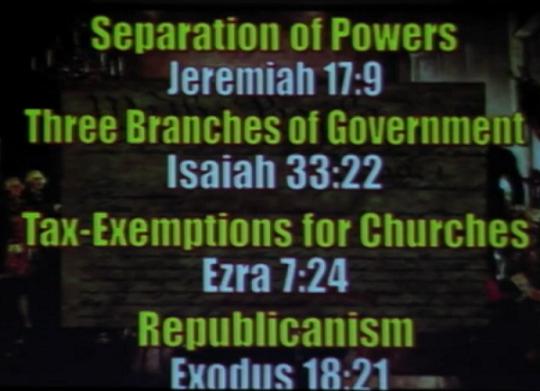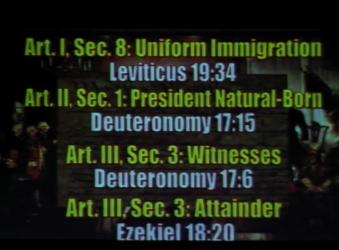I think I know the answer but I doubt David Barton will respond.
First, some background is necessary. For quite some time, the head of Ted Cruz Super PAC David Barton has claimed that John Locke referred to over 1500 Bible verses in his Two Treatises of Government. In The Jefferson Lies, Barton wrote the following:
Furthermore, in his Two Treatises of Government (1689) — the work specifically relied on by Jefferson and the other Founders as they drafted the Declaration — Locke invoked the Bible over 1500 times (pp. 40-41).
The earliest instance of the claim I have been able to find is a 2006 article posted on Wallbuilders’ website about Independence Day.
Locke’s Treatise (actually two separate treatises combined into one book) is less than 400 pages long; but in the first treatise, Locke invoked the Bible in 1,349 references; in his second treatise, he cited it 157 times. Imagine! In the primary work influencing the Declaration of Independence, Locke referred to the Bible over 1,500 times to show the proper operation of civil government. No wonder the Declaration has been such a successful document!
Then, on the August 14 segment of Rick Wiles’ TruNews (ironic), Barton again claimed that Locke included over 1500 Bible verses on how civil government is supposed to operate.
In this clip, Wiles asks David Barton why pastors won’t preach about culture war topics. Barton answers by describing how he was asked to go to the Ukraine to speak to political and religious leaders there about the foundations of American government. Barton used the Locke story to support his contention that American civil government was derived from the Bible. At about 1:20 into the clip above, Barton says:
The Ukraine is very highly Christian and so I just asked these leading pastors, the heads of their denominations, I said, does the Bible say anything about government, can you give me any verses on that? And I got about seven verses and these are like the popes of their denomination. And so I pulled out a book from 1690, John Locke’s Two Treatises of Government, you know in America, this is what our founding fathers used to write the 1776 Declaration of Independence. This little book, you can see, translated into Ukrainian, less than 400 pages long, it’s less than an inch thick, it has more than 1500 Bible verses on how civil government should operate, so how come you as church leaders only know seven, when here’s a little book with 1500 in it?
Barton then goes on to castigate American missionaries for teaching the separation of church and state.
I wrote about Barton’s 1500 verse claim previously with Locke scholar Greg Forster providing expert commentary. Here is one key component of Forster’s response:
In his edition of the Two Treatises, editor Mark Goldie of Cambridge University lists only 121 Bible verses cited in the entire Two Treatises. And that’s including all the places where Locke didn’t cite the verse explicitly and Goldie “interpolated” the citation. In addition to those 121 Bible verses referenced, Goldie lists six places where Locke cited an entire chapter of the Bible, and one place where he cited an entire book (Proverbs). That’s it. But anyone who has read the Two Treatises will know Barton’s claim is false without having had to count.
In another post, I provided Thomas Jefferson’s description of how he wrote the Declaration of Independence. While Locke was an intellectual influence, Jefferson said he didn’t consult any work to write it as asserted by Barton.
In this post, I want to show how I think Barton could have come up with his inflated claim of 1500 Bible verses. While I get a different number than Barton, I have found a way one can misrepresent the number of verses Locke used in his arguments. Barton’s approach to history and truth is on full display with this claim.
As pointed out first by Greg Forster, Two Treatises editor Mark Goldie produced an index to Scriptures implied and directly cited by Locke. At the end of the post, I am linking to images of that index for readers to examine. In the index, Goldie refers to Locke’s citation of individual verses, several full chapters, and the entire book of Proverbs. To get to over 1500 Bible verses, one must count each time an individual verse is cited by Locke (he cites some verses multiple places in the Two Treatises), and then add the total verses in each full chapter cited by Locke and then add the entire book of Proverbs. If one does that, the total count I get is 1,512 verses. See the image below for a illustrative portion of the Goldie index with an entire chapter, multiple verses and the entire book of Proverbs.
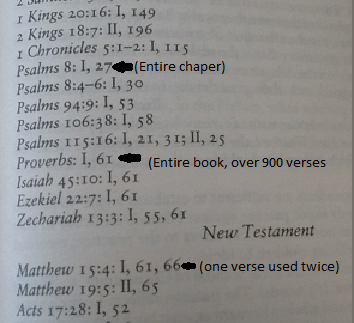
Even if this method was defensible (it’s not), Barton’s claims are still wrong. He says in The Jefferson Lies that “Locke invoked the Bible 1500 times!” Even though Proverbs contains 915 verses, mentioning the Old Testament book once does not equate to invoking the Bible 915 times. Locke invokes Proverbs once, so one can subtract 914 times from the count if one is being honest.
Most recently, Barton claimed that the Two Treatises “has more than 1500 Bible verses on how civil government should operate.” As I have demonstrated, to get to over 1500 verses Barton has to count the entire book of Proverbs, entire chapters of the Bible, such as Genesis 36, as well as every time Locke refers to the same verse. I want Barton to explain to me how the Proverbs and some of the verses in the chapters mentioned by Locke tell us how “civil government should operate.” For instance, Gen. 36: 38 reads:
When Shaul died, Baal-Hanan son of Akbor succeeded him as king.
How about Exodus 21:7? Did the founders rely on this verse to help write the founding documents?
If a man sells his daughter as a servant, she is not to go free as male servants do.
How about Proverbs 12:25?
Anxiety weighs down the heart, but a kind word cheers it up.
Few of the verses Locke used fit the descriptions offered by Barton.
In my opinion, Barton inflated the number of verses in order to craft a fiction about the role of the Bible in the construction of the Declaration of Independence.
To close, it is worth re-reading what Forster said about Locke’s use of the Bible:
Moreover, a large number – possibly even the majority – of those 121 citations are not to passages “on how civil government is to operate.” The Bible references in the Two Treatises are heavily concentrated in the First Treatise. The overwhelming majority of the First Treatise, in turn, is devoted to an extended analysis of small number of selected verses from the first two chapters of Genesis, especially Genesis 1:28-30. That’s a lot of analysis devoted to understanding the biblical text, but it’s not a large number of verses cited. The remainder of the First Treatise, where other biblical verses are cited more frequently, looks to the Bible not primarily for instruction on civil government but almost entirely on the power of parents over their children, especially the inheritance of property from parents to children. Locke is interested in these verses because he wants to use them to refute Robert Filmer’s claim that today’s kings inherit their power from Adam, but these are clearly not “biblical references on how civil government is to operate.” They are biblical references on how families are to operate. In fact, the point that descriptions of the how the family should work are not descriptions of how civil government should work was Locke’s main point!
Goldie’s index: page 253, 254, 255.
